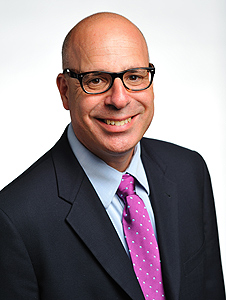
After a series of introductions consistently describing her as extraordinary, President Herbst cautioned in her inauguration speech last Friday against anyone thinking of her as some kind of magician: “It’s pretty much impossible to be original on the big themes. … UConn today is a growing, comprehensive research university, and we want precisely what institutions like ours always seek: high achievement, discovery, and relevance in the lives of our students, and in the economic development of our state.” Her apparently characteristic modesty notwithstanding, President Herbst showed us a bold way forward.
Herbst drew that map about a third of the way into her speech when she answered her own question about how best to prepare our students to navigate our complex world: “In addition to helping students achieve academic success, we need to teach students to be engaged citizens, in the best sense of our most hopeful democratic theorists. Active citizenship empowers people to create the future, rather than being helpless victims of events and social forces.”
When I heard those sentences, I couldn’t help but think of the great 20th-century political theorist, Hannah Arendt. In the late 1950s and 60s, Arendt bemoaned the lack of an active political life in the modern state. Citizens of both Europe and the United States, she argued, were encouraged to abandon the public realm to bureaucrats and politicians, and to retreat entirely into the private realm, where they could focus exclusively on improving their own economic well-being. For Arendt, this ever-increasing concern with the “economic” comes at the cost of realizing our full potential as human beings. To be sure, UConn needs to focus on economic development in this state, particularly during these dire economic times, and Herbst has made clear that this is one of her top priorities. But she also made clear that she wanted to empower our university to instill in our students a passion for knowledge and discovery that they can actively employ in improving the public good.
After Herbst’s speech, I was asked by some whether I was disappointed that she talked almost entirely of the United States and Connecticut. I wasn’t at all. First, I hung on to one of her concluding statements: “By appreciating the love of learning, the life of the mind, the natural history of this beautiful countryside, our students will value their university, their state, their nation, and their world.” Ultimately, Herbst is a humanitarian who places the highest value on our ability to walk in other people’s shoes, no matter where they live. I also couldn’t help but note whom our new president selected as her keynote speaker: Professor William Hitchcock, a human rights and modern European history scholar, who proclaimed that ours is a “Global Century,” in which universities will serve as a “global conveyor belt of ideas” and “the world’s engine room,” where many of the urgent problems facing the world will be tackled. In his introduction, Hitchcock relayed that when Susan Herbst asked him to deliver her keynote, she counseled him to “think big, go global.” Hitchcock went global; Herbst went civic, and that is for me a winning combination for UConn.


